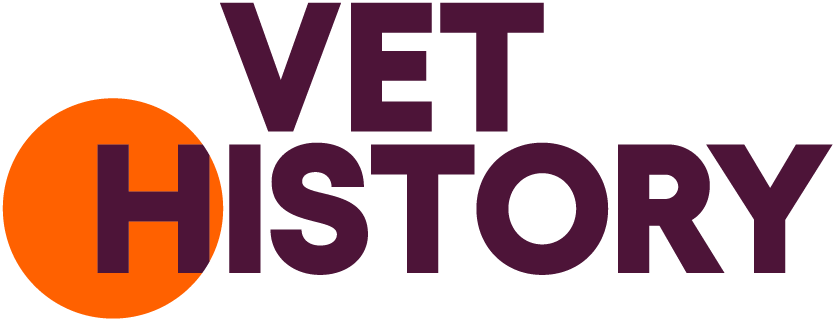A snapshot of British veterinary practice in 1882
One of my favourite parts of our Archives is the extensive collection of applications for Existing Practitioner status, sent to the RCVS in 1882. After the arduous work carried out seven years ago to sort and list the 859 separate applications, I am very excited to now begin making these fascinating documents more accessible to the public via our Digital Collections website.
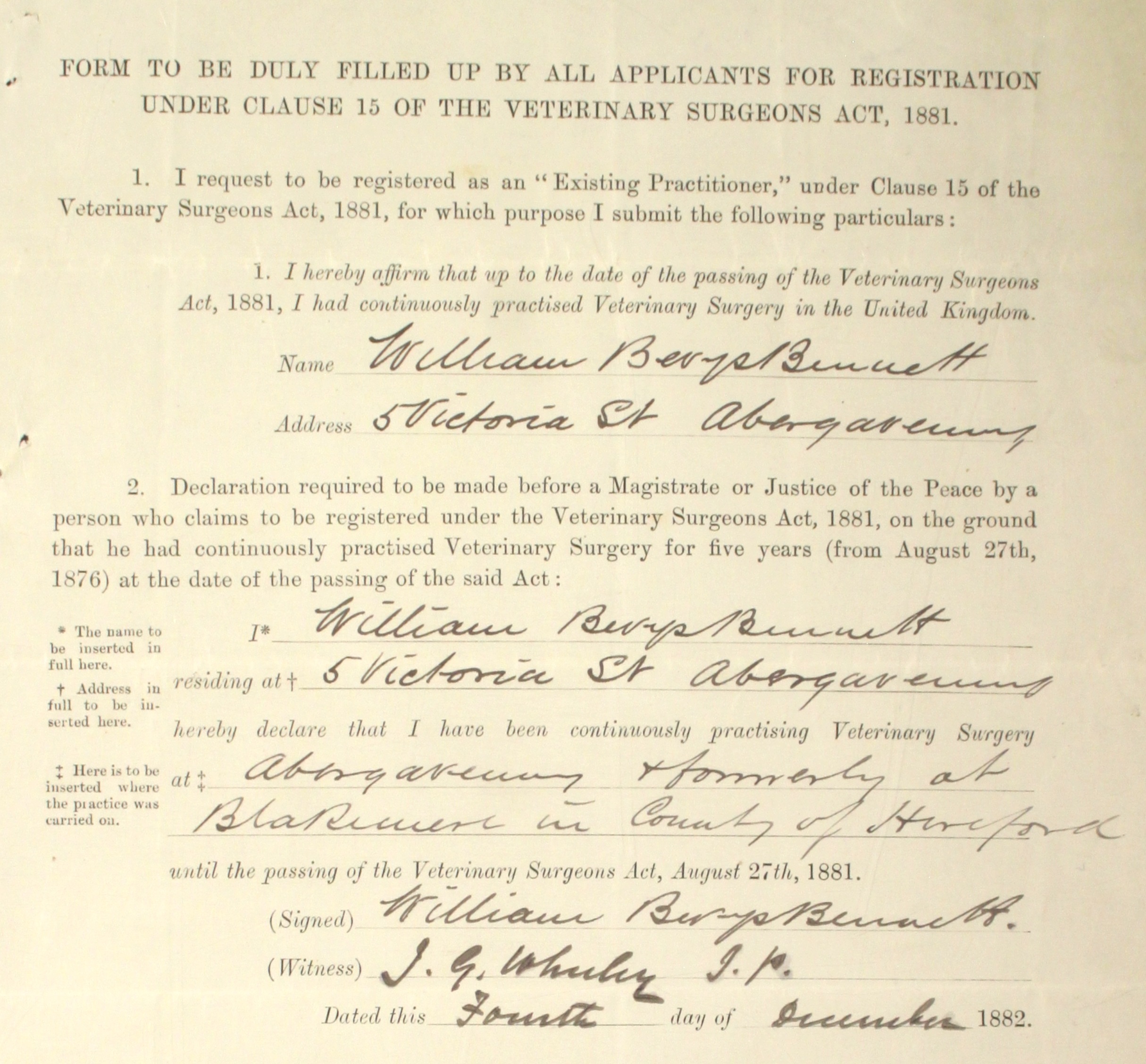
Part of the application submitted by William Bevys Bennett of Abergavenny
“Existing Practitioners” not “Veterinary Surgeons”
Clare’s previous blog post describes the background to the Existing Practitioner status in more detail. In brief, each of the applications was sent by a man practising veterinary surgery in Britain, but not a member of the RCVS, and who likely hadn’t ever attended a veterinary school. The Veterinary Surgeons Act 1881 legally distinguished the difference between MRCVS and unqualified practitioners, who could no longer claim the title ‘veterinary surgeon’. The creation of a fixed list of ‘Existing Practitioners’ served to prevent skilled men from losing their livelihood.
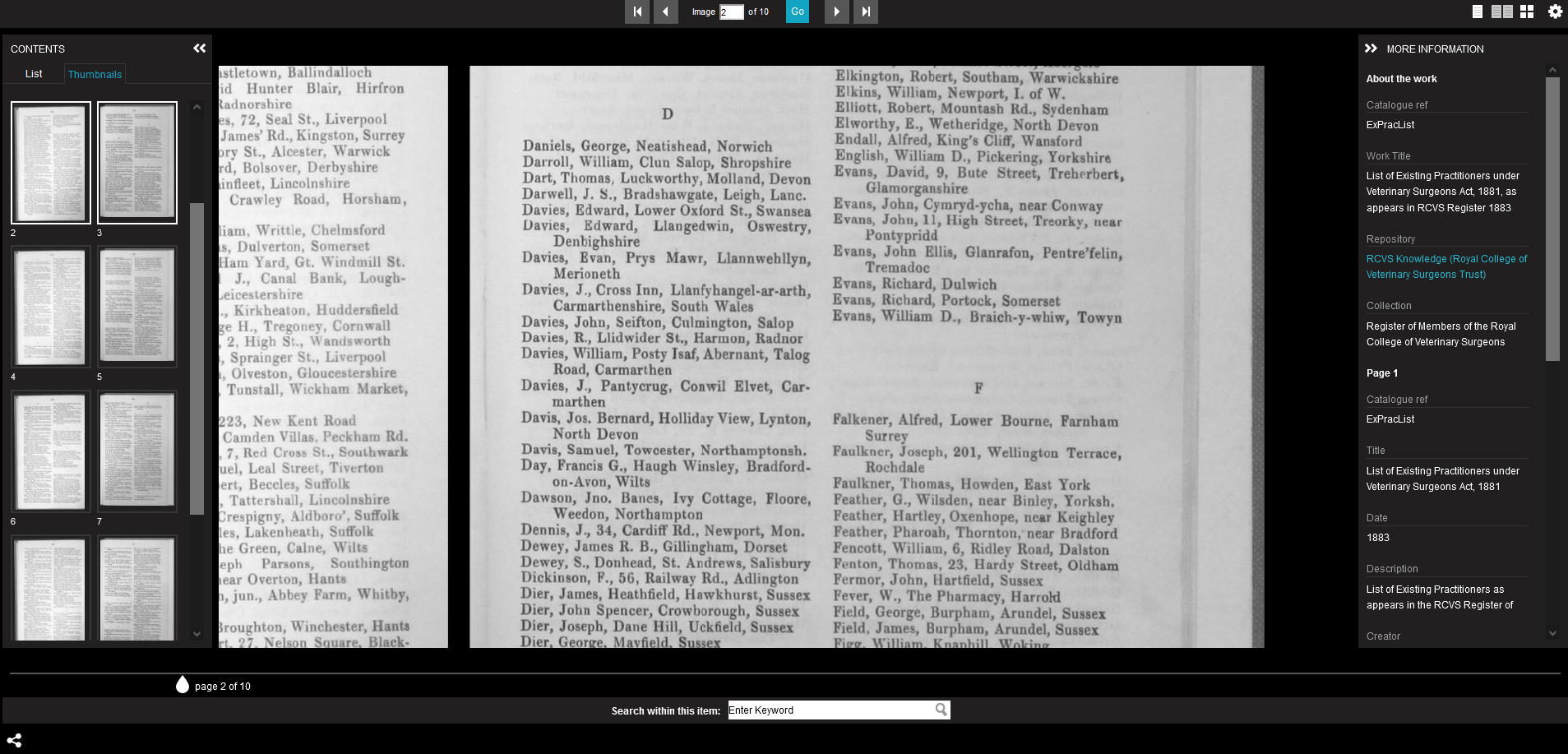
The complete list of Existing Practitioners, as it appeared in the RCVS Register 1883, can be viewed on our website at the link above.
Community connections
We receive many enquiries from descendants of veterinary surgeons and are able to provide information as recorded on the Register over time. However, I am always glad when I discover that the enquirer’s ancestor is actually an Existing Practitioner rather than an MRCVS, as in many cases there are supporting references alongside their application forms. These letters from local farmers, landowners, doctors and clergymen often provide an extra level of insight into the working life of the applicant, and his connections within the community in which he lived and contributed.
For example, the application of William Henry Arthy includes a detailed letter of reference from the ‘Assistant Horse Superintendent’ of the Shropshire Union Railways and Canal Company. Mr Llewellyn recounts that Mr Arthy’s attention helped all their horses recover from a bout of Influenza and Strangles the previous spring.
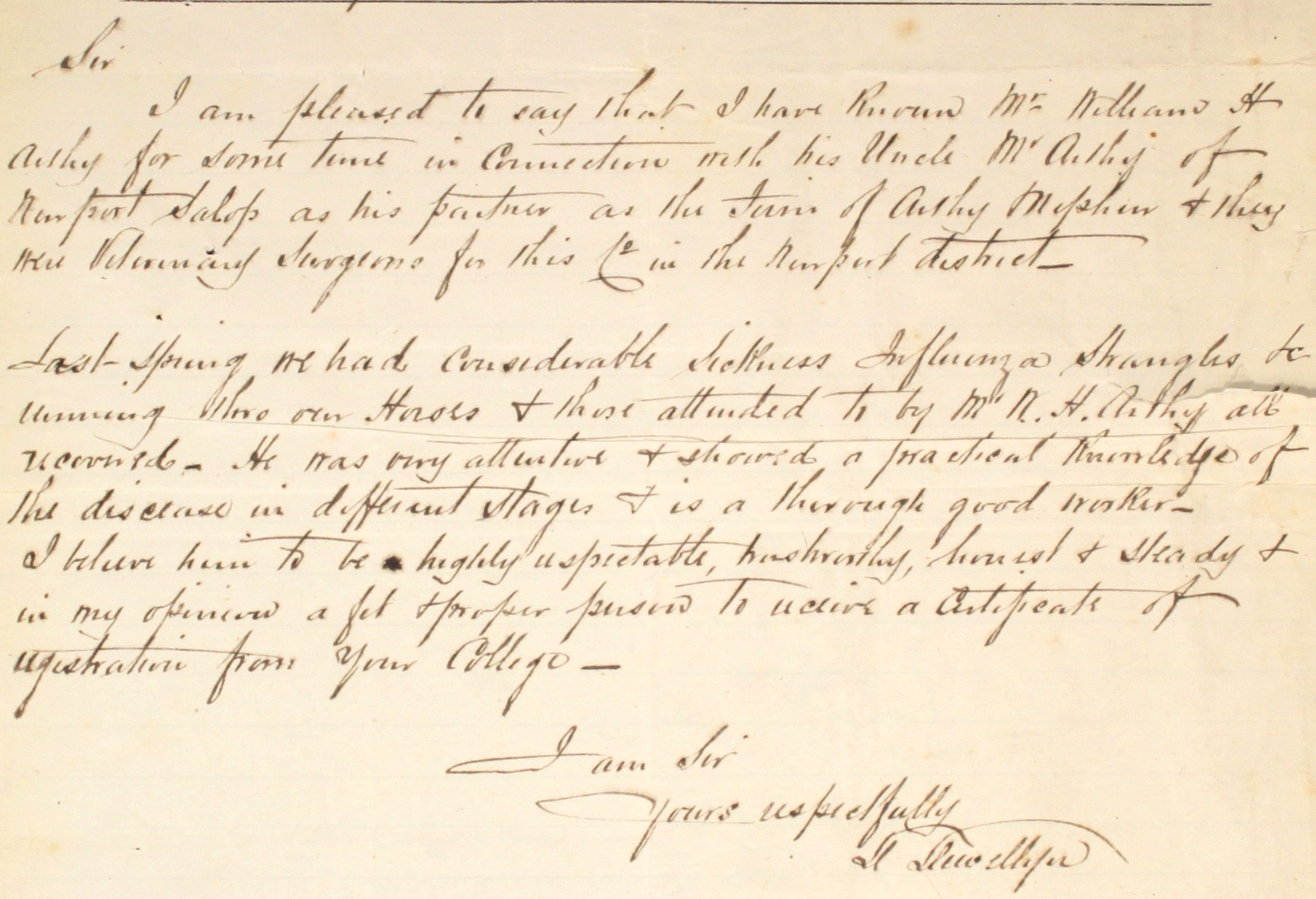
“I believe him to be highly respectable, trustworthy, honest & steady” – Letter of reference for W H Arthy from Mr Llewellyn, 14 Apr 1882
Another intriguing application is that of Frederick George Baker, who missed the ‘early bird’ offer of only three Guineas application fee as it was submitted before April 1882, and so had to pay double the amount in December. In a letter to the RCVS, he says, “it is rather awkward to get old of money just before Christmas” and wants to know how much time he can take to gather the funds. He contacted R C Trigger MRCVS to ask him to help him with the fee, and although we do not know how they are connected, and Trigger himself writes to Baker that he “quite fails to see that you have any claim upon me”, he offers to contribute one sovereign to his fee.
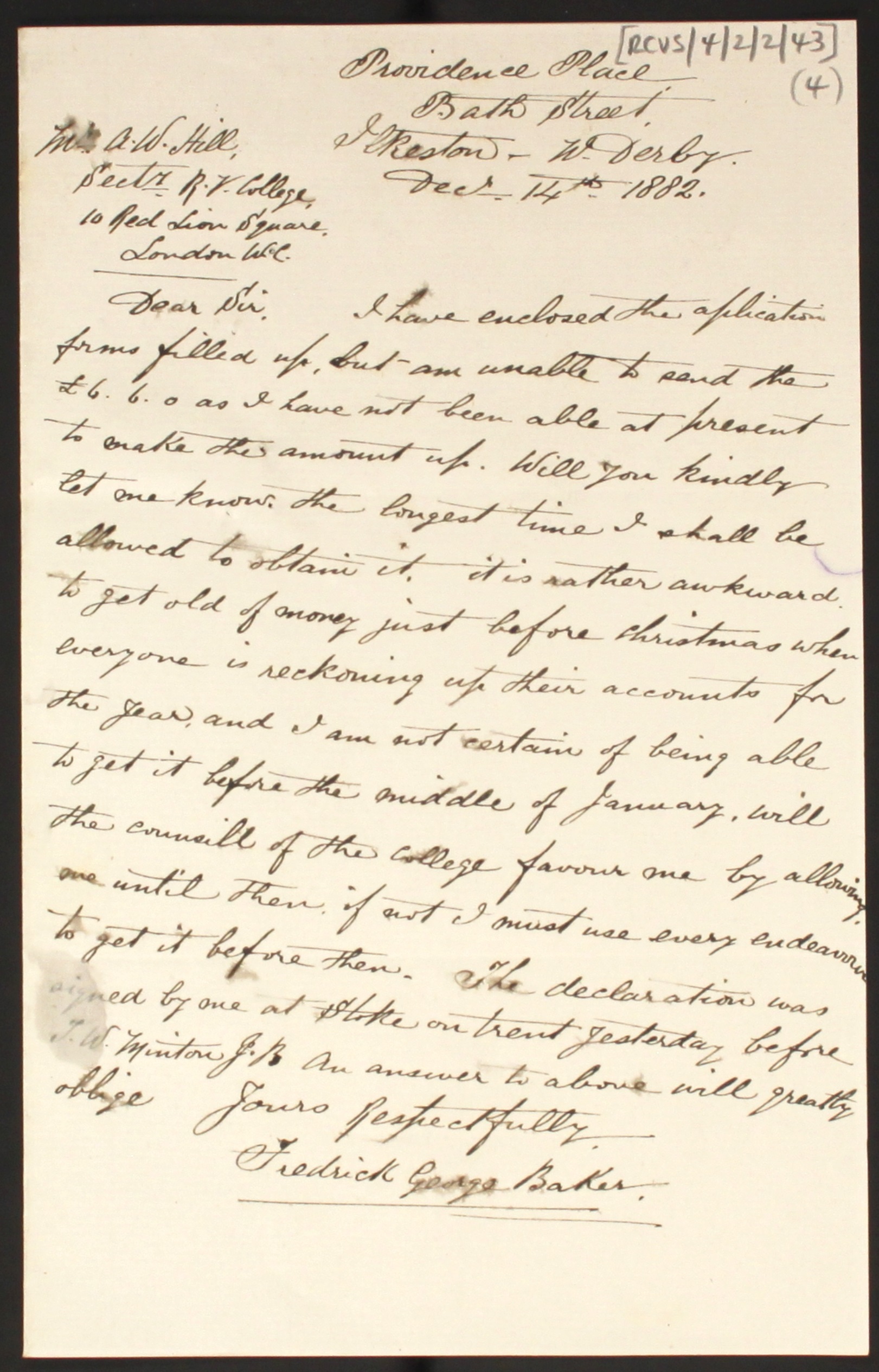
“I have not been able at present to make the amount up. Will you kindly let me know the longest time I shall be allowed to obtain it.” Letter to RCVS Secretary from Frederick George Baker, 14 Dec 1882
Digitising the applications
The above are just two examples of the hundreds of stories that can be found in this collection. As part of our ongoing digitisation project, I will take a sample of the collection, digitise the individual documents for each application and upload them to our Digital Collections website. So far ten are already viewable on the website, but more will be added over time. I aim to get at least 10% of the applications uploaded initially, including those which contain the most correspondence and supporting papers.
Take a look at the applications uploaded so far and explore this rich source of British social and veterinary history.
-Lorna-
